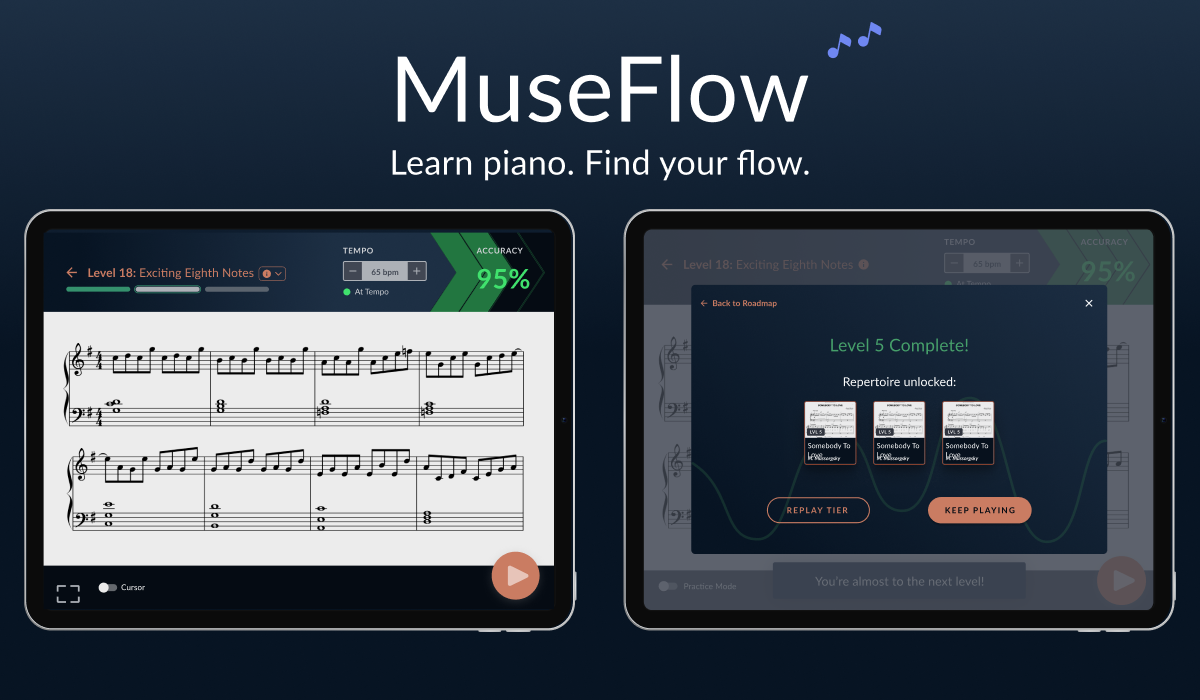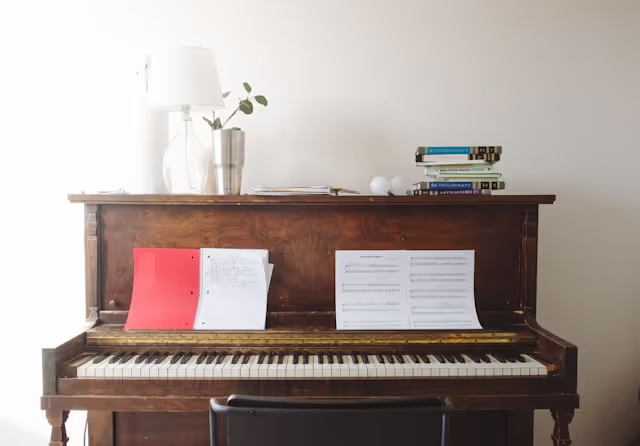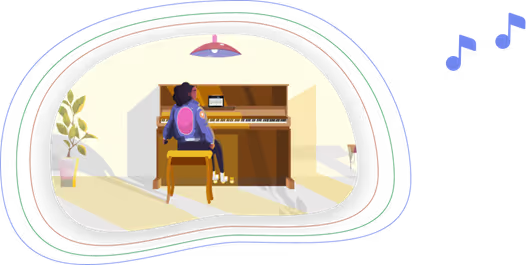.svg)
Breaking Free from Perfectionism in Music Performance
Perfectionism is often viewed as a virtue in music performance. Precision, discipline, and attention to detail are essential skills for any musician. However, when the pursuit of flawlessness becomes rigid, it can interfere with learning rather than support it. In piano practice especially, excessive perfectionism is frequently linked to fear of mistakes, avoidance of challenge, and stalled progress—particularly among adult learners.
Educational psychology and skill‑acquisition research increasingly suggest that long‑term improvement depends less on error‑free execution and more on consistent practice, feedback, and gradual progression, according to research on structured practice and feedback. From this perspective, progress—not perfection—emerges as a more reliable foundation for sustainable musical growth.

The Perfectionism Trap in Music Learning
Perfectionism in music often stems from deeper concerns such as fear of failure, fear of judgment, or a desire to maintain control. While these impulses may initially motivate effort, they can quickly turn practice into a source of anxiety rather than development.
Common patterns associated with perfectionistic practice include:
- Rigid standards, where anything short of ideal performance feels unacceptable
- Fear-driven repetition, which discourages experimentation and exploration
- Overgeneralization, where a single mistake is interpreted as lack of ability
When these patterns dominate, learners may practice less often, avoid challenging material, or abandon progress altogether. Over time, perfectionism becomes a barrier rather than a catalyst for improvement.

Why Progress-Oriented Practice Works Better
Progress-focused learning environments help counter perfectionism by redefining success. Instead of expecting mastery at every step, learners work toward clear, attainable benchmarks that allow movement forward even while skills are still developing.
This approach aligns closely with adult learning principles, which emphasize autonomy, visible progress, and manageable challenges. Adults are more likely to persist when they can see improvement and adjust their pace based on personal capacity rather than external pressure.
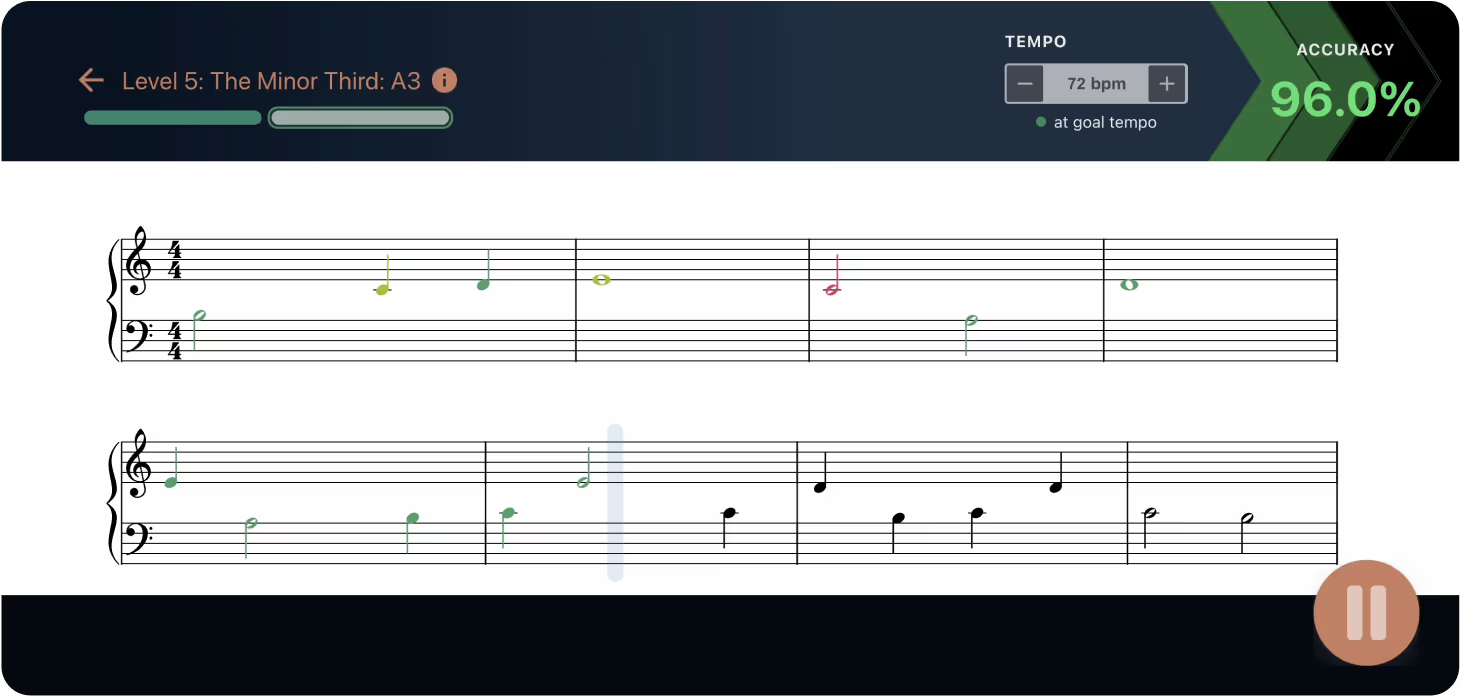
Designing Practice Around “Good Enough” Progress
Some modern piano learning platforms, including MuseFlow, structure practice around defined accuracy thresholds rather than flawless repetition. For example, learners may advance after achieving consistent, high-quality performance across short musical phrases instead of repeating material until perfection is achieved.
This type of structure is designed to interrupt all-or-nothing thinking. By establishing a clear and realistic definition of “good enough,” learners are encouraged to move forward without feeling stuck. The result is steady momentum and reduced performance pressure.
Reframing Mistakes as Useful Feedback
A critical factor in overcoming perfectionism is how mistakes are framed during practice. When errors are treated as neutral information—signals for adjustment rather than evidence of failure—learners are more likely to remain engaged and curious.
Visual or timing-based feedback systems can help support this shift by showing where improvement is needed without interrupting flow. Instead of stopping practice after each mistake, learners receive guidance that allows continuous playing and reflection, helping them maintain learning flow. This approach helps normalize errors as part of the learning process.

Balancing Challenge and Focus
Perfectionism is often accompanied by cognitive overload: tasks feel either too difficult or emotionally demanding. Practice designs that allow learners to adjust difficulty, tempo, or complexity help maintain a balance between challenge and skill level.
When difficulty is scaled appropriately, learners are more likely to experience focused engagement rather than anxiety. This balance supports deeper concentration and makes practice sessions feel productive instead of exhausting.
Redefining Success in Music Practice
For many musicians, especially adults returning to piano later in life, success feels distant when measured solely by flawless performance. Progress-oriented practice reframes success as consistency, effort, and reflection.
Over time, this mindset supports resilience. Learners become better equipped to handle mistakes, adapt to challenges, and continue practicing even when improvement feels gradual. These skills extend beyond music and contribute to healthier learning habits overall.
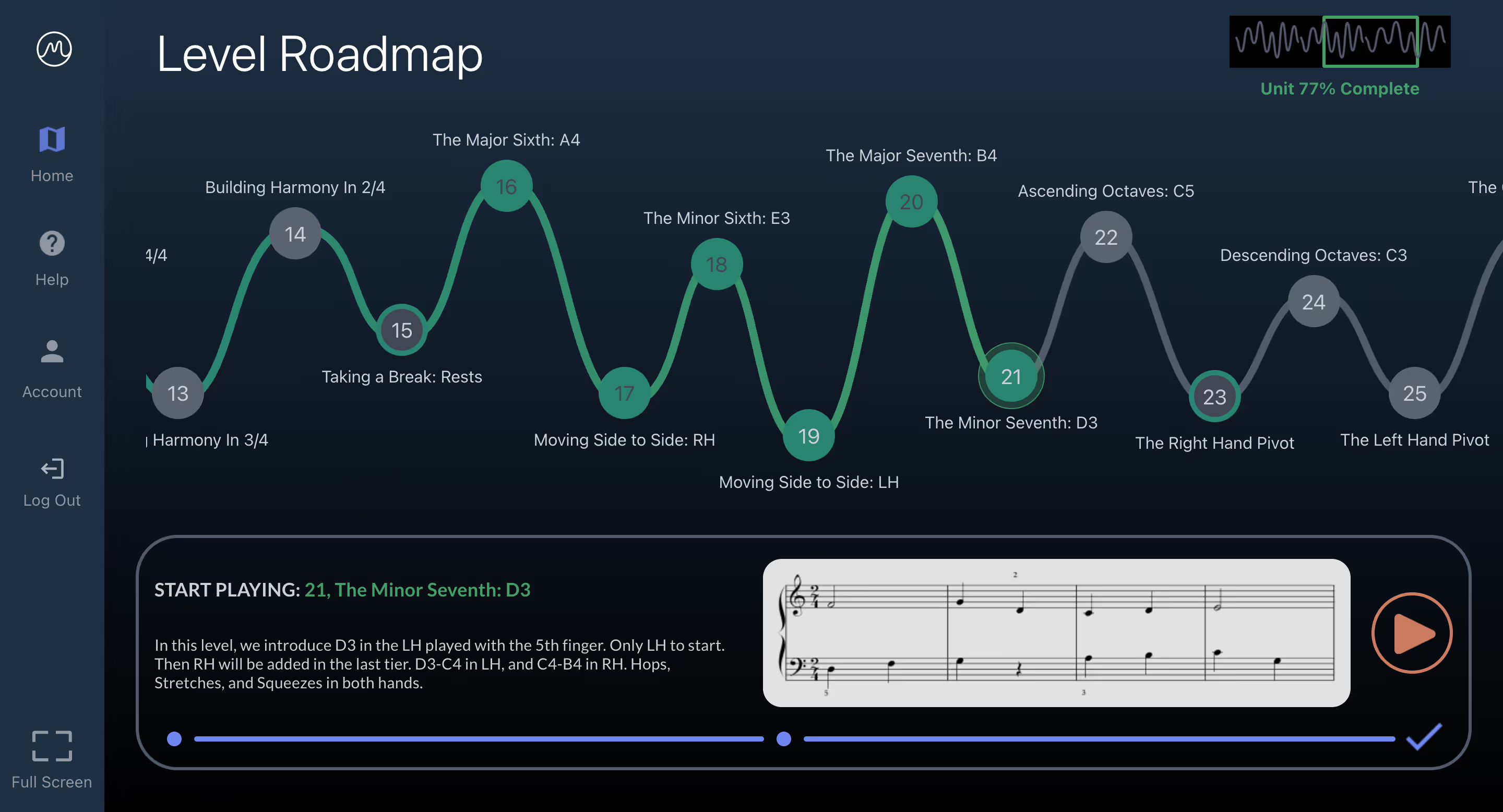
Beyond the Piano
Although these ideas are often discussed in the context of music education, they apply broadly to skill development in other areas. Learning systems that prioritize progress over perfection help individuals build sustainable habits, maintain motivation, and reduce fear-based avoidance.
By normalizing imperfection and emphasizing steady improvement, learners are more likely to stay engaged and continue growing—both at the piano and beyond it.



.jpg)

